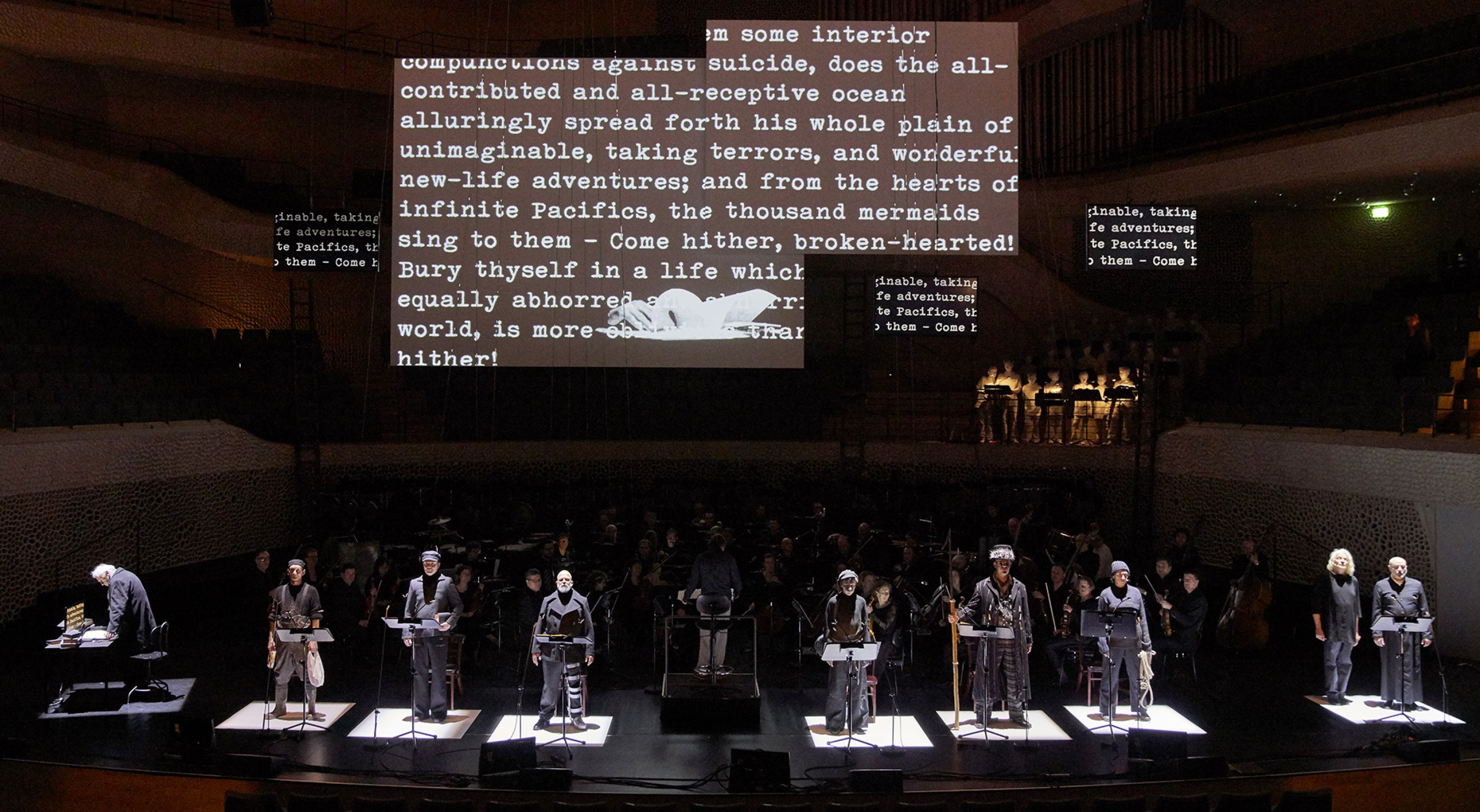Olga Neuwirth
The Outcast hommage à Herman Melville
Libretto, Barry Gifford, Olga Neuwirth
“A musicinstallation-theater with video”
Monologues for Old Melville, Anna Mitgutsch
Susanne Elmark, soprano– Ishmaela
Otto Katzameier, baritone – Ahab
Andrew Watts, countertenor – Queequeb
Georgette Dee, fortune teller – Bartleby
Johan Leysen, narrator– Old Melville
Steve Karier, actor – Father Mapple
Johannes Bamberger, tenor – Starbuck
Peter Brathwaite, baritone – Stubb
Soloist from Münchner Knabenchor – Pip
Ensemble intercontemporain
Orchestre du Conservatoire de Paris
Company of Music
Münchner Knabenchor
Directed by Matthias Pintscher
Sound projection, Robin Meier
Video design and direction, Netia Jones
Produced by ORF RSO Wien; Wien Modern; Wiener Konzerthaus; Elbphilharmonie Hamburg
Co-produced by Ensemble intercontemporain; Conservatoire national supérieur de musique et de danse de Paris; Philharmonie de Paris; Festival d’Automne à Paris
With support from the Ernst von Siemens Foundation for Music and the Austrian Cultural Forum
In The Outcast by Olga Neuwirth, inspired by Herman Melville’s Moby Dick, the colorful sea is tainted by blood – human or animal. It is a utopia, an open, limitless space, nevertheless witnessing the disasters of our time: the tireless pursuit of process and the climate crisis.
In a blend of theater, music, and videos, featuring a unique twist on action and a stylistic approach to location and objects, The Outcastrevisits Moby Dick (1851). The audience witnesses an elderly Melville’s monologues on writing, nature, destiny, and God. Then, charismatic captain Ahab takes the Pequod crew on his obsessive, destructive search for the white whale. The crew, at first committed to equality, gets slowly but surely alienated, a symbol for a still hesitant democracy. Welcoming the unknown, compassion, and hope resonate across the voices of individual members and the children’s choir. Injustice, discrimination, greed, and the shameless exploitation of natural resources feed into this chronicle of violence and grief, which ultimately claims everyone’s life except Ishmael’s, the narrator and Melville’s alter ego. Olga Neuwirth replaced this misanthropist man with a woman, Ishmaela—women were banned from working on ships in the 19th century. This ambivalence, this patchwork, are a convincing reflection of a fascinating novel.
